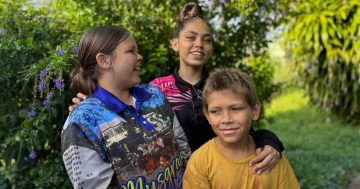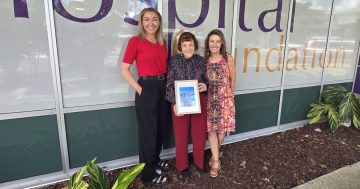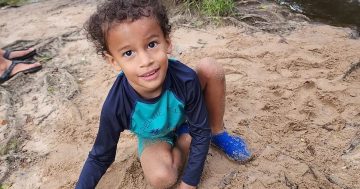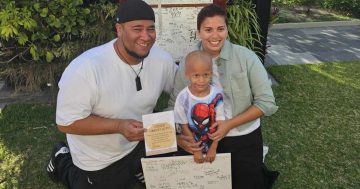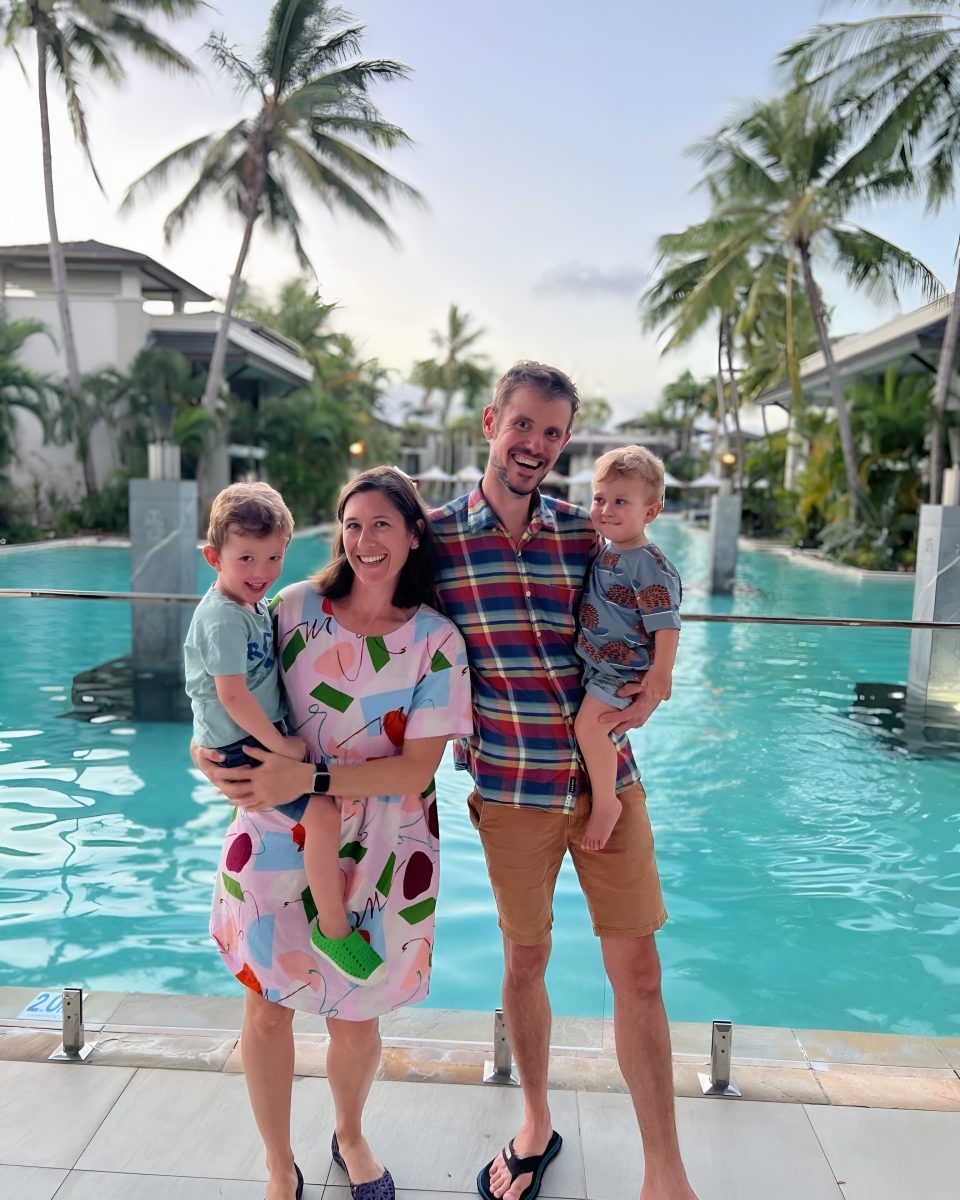
A stem cell transplant is the best chance for Jake Parker to kick his third cancer diagnosis to the curb and live a long life with his family. Photo: Supplied.
He’s dedicated his career to helping his community, but now, after his third cancer diagnosis, a Thursday Island doctor needs his community’s help.
After being diagnosed with Hodgkin’s Lymphoma, a cancer of the lymphatic system, Dr Jake Parker’s best chance at recovery lies with a stem cell transplant, which is where the community’s support comes in.
“At the moment, we’re having trouble finding a match,” the 42-year-old said.
“None of my brothers or sisters are a match, which is about a 25 per cent chance, and so far, they haven’t found a match in Australia, so they’re starting to look overseas.”
Any adults aged 18-35 can register as a stem cell donor by simply requesting a cheek swab kit from Stem Cell Donors Australia to be mailed home, increasing the chances for a match for Dr Parker and hundreds of other people battling blood cancers.
“A lot of people know about blood donation, a lot of people know about organ donation, but stem cell donation is something that is not as well known,” Dr Parker said.
“In essence, I would call it like a semi-complicated blood donation process, where they take your blood, take out the stem cells and give the blood back to you.
“A lot of people think that it involves much more than that, and it’s a very simple process to go on the register.”
He was first diagnosed with Hodgkin’s Lymphoma in 2004 at just 21 years old, and again 17 years later, when he underwent an autologous stem cell transplant, a process where one’s own healthy cells are used.
Dr Parker received chemotherapy following his first two diagnoses, but is currently undergoing immunotherapy this time while he waits for a donor match, which often has fewer side effects than other cancer treatments.
“I’ve been through chemotherapy twice, which kind of wipes you out for about six to 12 months, whereas I’ve been having immunotherapy for four months now, and I’m still at work, I’m still able to go and do everything,” he said.
“This time, it’s different for me in particular, because we’ve got two boys now, a five- and three-year-old, so being able to still parent and be a part of the family, it’s much better than the last few times.”
In a trying time, Dr Parker said he remained hopeful of finding a match, adding it was important for people of all backgrounds to register as a donor.
“One of the things that I’ve learned about the registers is that they’re trying to encourage everyone who’s eligible, but particularly people from minority groups in Australia, especially Aboriginal and Torres Strait Islanders,” he said.
“One of the lucky things about me is being Caucasian, with my heritage from England and Ireland, so there’s a much higher potential that I’ll get a donor from overseas, whereas people from Aboriginal and Torres Strait Islander backgrounds, for example, would be less likely to get donors from overseas.”


